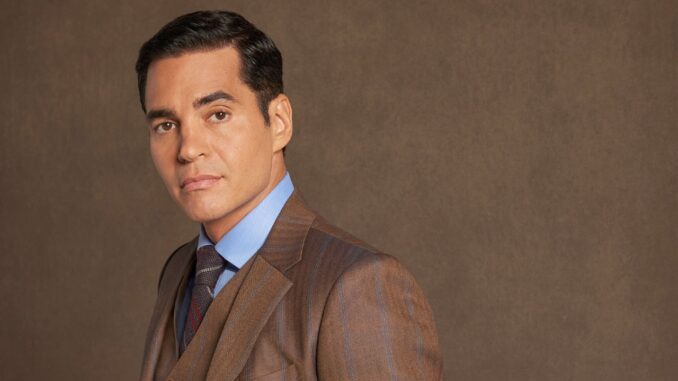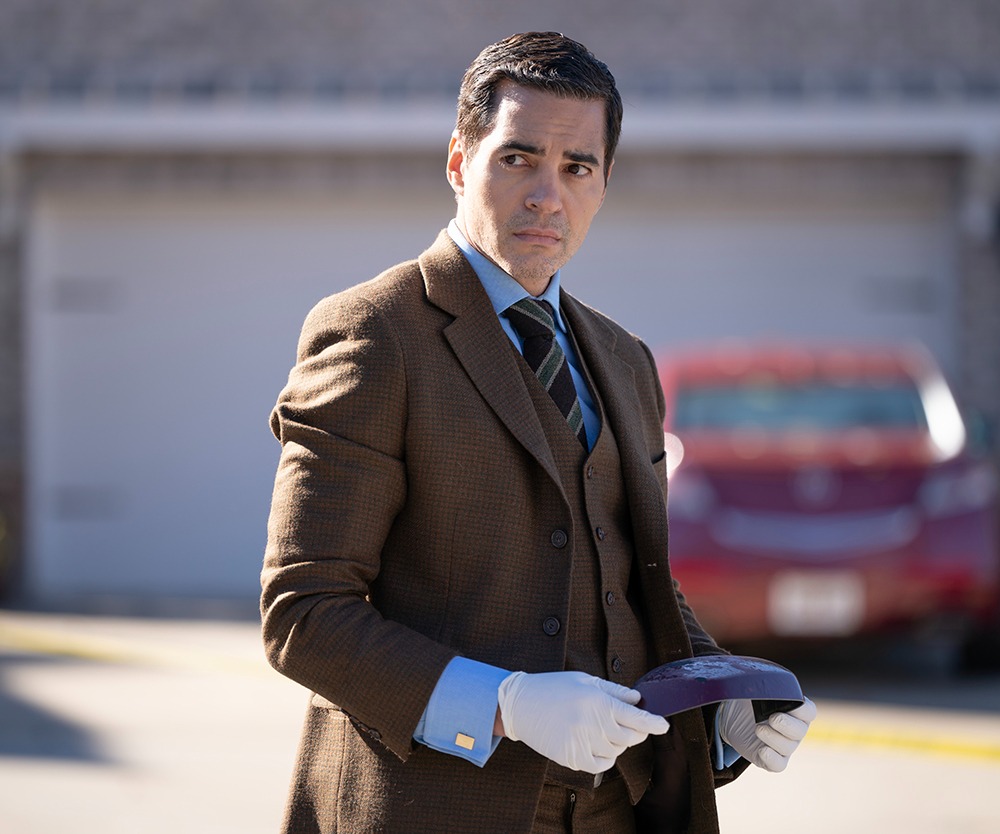
Rodriguez breaks down what makes Will Trent tick, from his Southern drawl and flip phone, to his beat-up shoes
There are some shows where you just want to hang out in that world, and for me, Will Trent is one of them. From the first episode, I was hooked and to be honest, I kinda want to be Will’s best friend.
Ramon Rodriguez, who stars as Will, laughed when I told him that. “You want to be Will’s best friend? That’s amazing. I love that,” he said. “I don’t know if I want to be his best friend… but he’s an interesting guy, that’s for sure.”
In our conversation, he talked all about building the character, from the Southern cadence he created (inspired, in part, by Outkast’s Andre 3000), to Will’s beat-up shoes and signature three-piece suits. He also got into how being involved in casting has changed his perspective on acting, and yes, we even talked The Wire. Because how could we not?
You have this cadence for him that is just so addictive to my ear. How did you come up with that? Is it as fun to do as it is for me to listen to it?
Ramon Rodriguez: You know, it is. It immediately dives me right into him.
I’ve never really created a Southern dialect and so when I read the script and knowing where he was from, I wanted to make sure he sounded like the environment he was raised in, which was Atlanta and the foster care system there. So, I found an incredible dialect coach and started that process.
And we had a couple of different ideas and we wanted to find some just voices and sounds for inspiration and one that really seemed to resonate was Andre 3000 from Outkast. And it wasn’t to sort of duplicate, but it’s just there’s a tonality, there’s a rhythm. And that actually really helped me and eventually created the sound that I guess is now Will Trent.
It was a great entry and kind of a foundation, like a building block that I was like, it cracked him open in a way that was really helpful.
And another part of that, honestly, was his wardrobe. I don’t I don’t wear three pieces on a daily basis, so putting that on, I told myself it was him putting on his armor, because he is someone that sort of keeps his true self very close to the chest. He likes to make sure he presents himself a certain way, so that was a big part.
And then in his wardrobe, he has these terrible shoes that are so old and beat up, which I love so much, because you look at those shoes, and you know, this person’s lived a life. That they have a story.
I think those are things that I loved early on when I read the script, like the handkerchief and the tape recorder. He’s got a throwback old school vibe about him. When we were doing the pilot, we referenced a lot of noir films that just gives it some texture and some life.
Even when he’s not on the job, his clothes feel like something from a couple years ago, like he hasn’t shopped for ages.

Ramon Rodriguez: I think he’s sort of stuck in time, in the way he operates. He’s a very rigid person. You know, he compartmentalizes a lot of things and that’s kind of how he’s coped with everything that’s happened in his life. I think he’s still living in the past in certain ways.
I mean, it wasn’t until this last season where we finally saw him with an actual smartphone. He had a flip phone that was taped up. But I love that, it was hard for me to give up that flip phone, I have to be honest, just because it’s so unique, so awkward and telling. But I think for someone like him, it’s actually functional.
We wanted to find ways that this character could be evolving and I thought it was a beautiful way to introduce… the purpose of the phone is not just have a cool smartphone, it’s a way for him to really accept his dyslexia. And he’s using it as a tool, which he learned from his uncle Antonio in season two, who is also dyslexic. And not only that, it’s a connecting point to his mom, because Eduardo only speaks Spanish. So, he gets to continue this new language that he was learning that is rooted in his identity to his mom.
And so I love when we’re able to have those creative conversations with the writers and really find things that anchor and aren’t just, you know, for no particular reason.
Are you able to go in and out of the accent? Like you don’t stay in it all day, do you?
Ramon Rodriguez: No. But season one, I have to say I was definitely much more.. it was a new sound, a new placement in my mouth and so I stayed in it more than I definitely did after season one. Season two, it was so wonderful to be able to just pop in and I felt really just much more comfortable in it.
